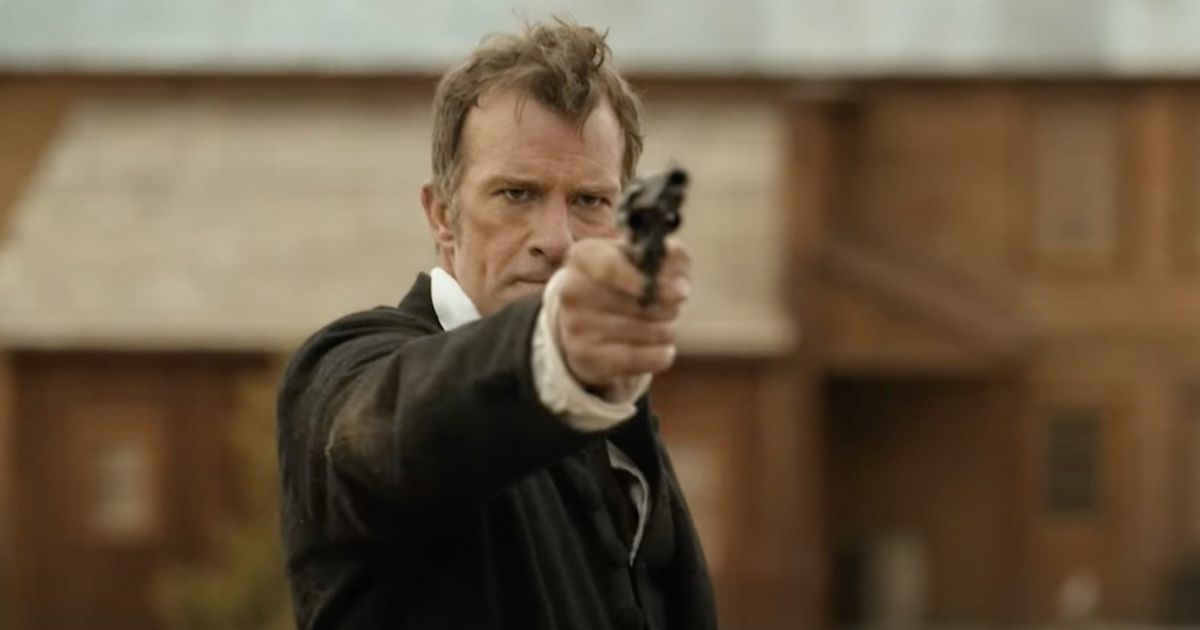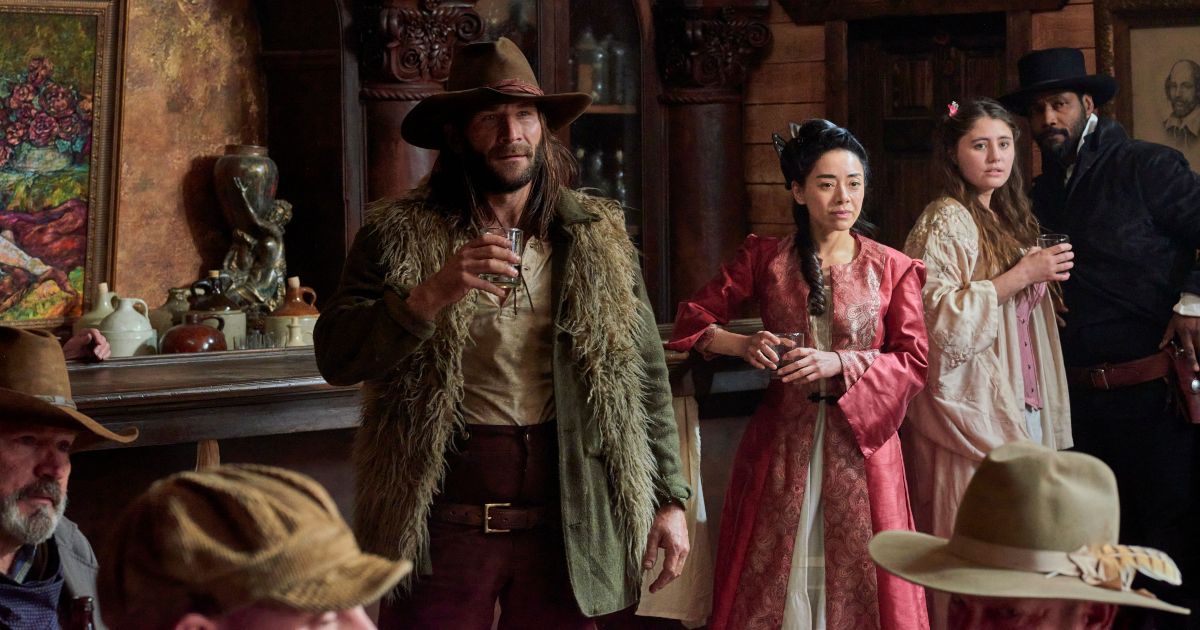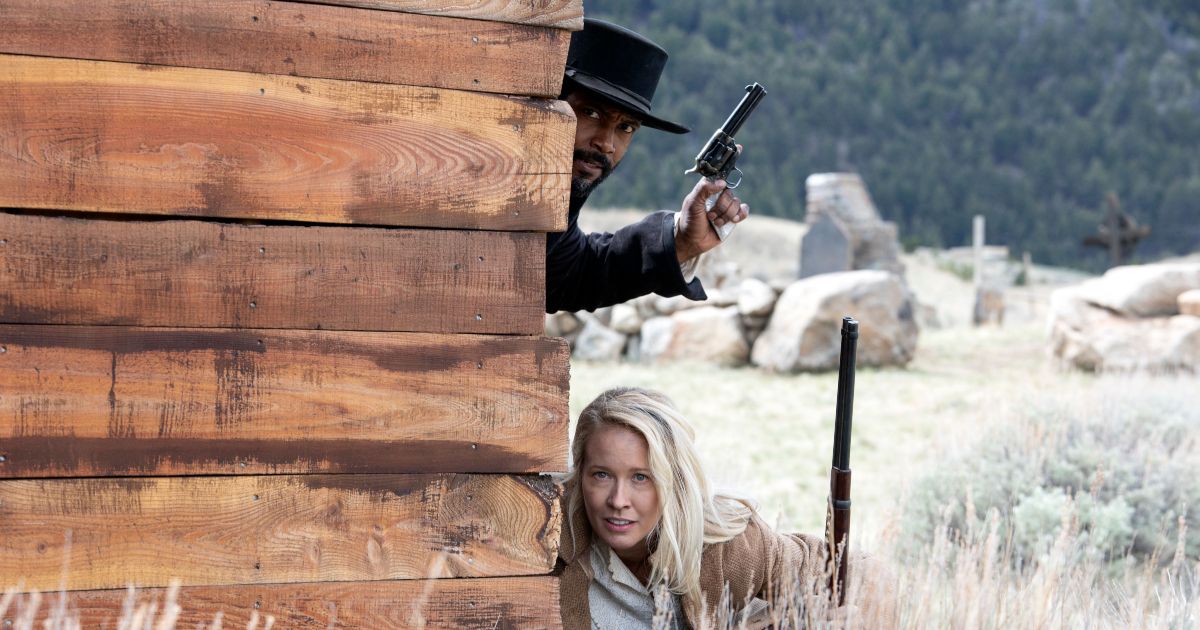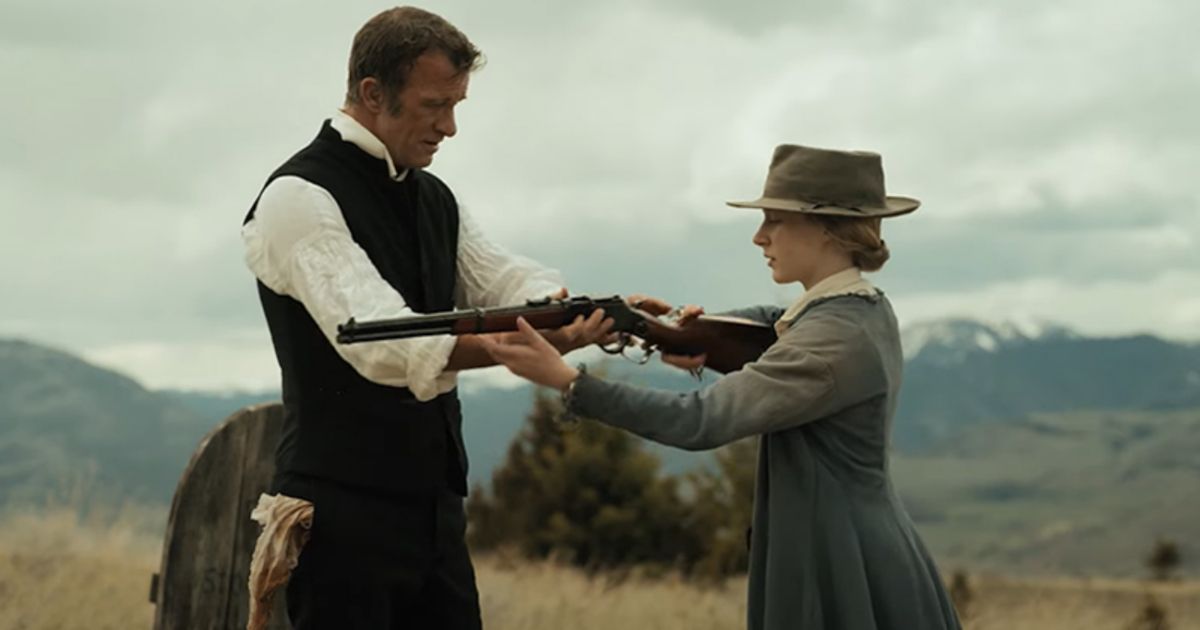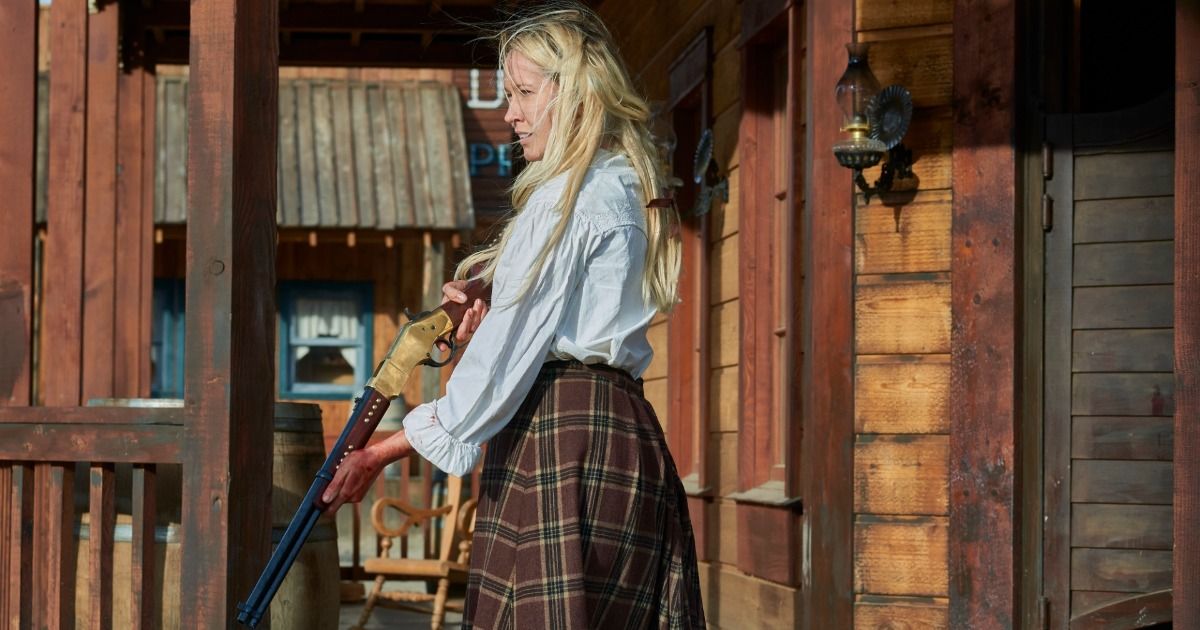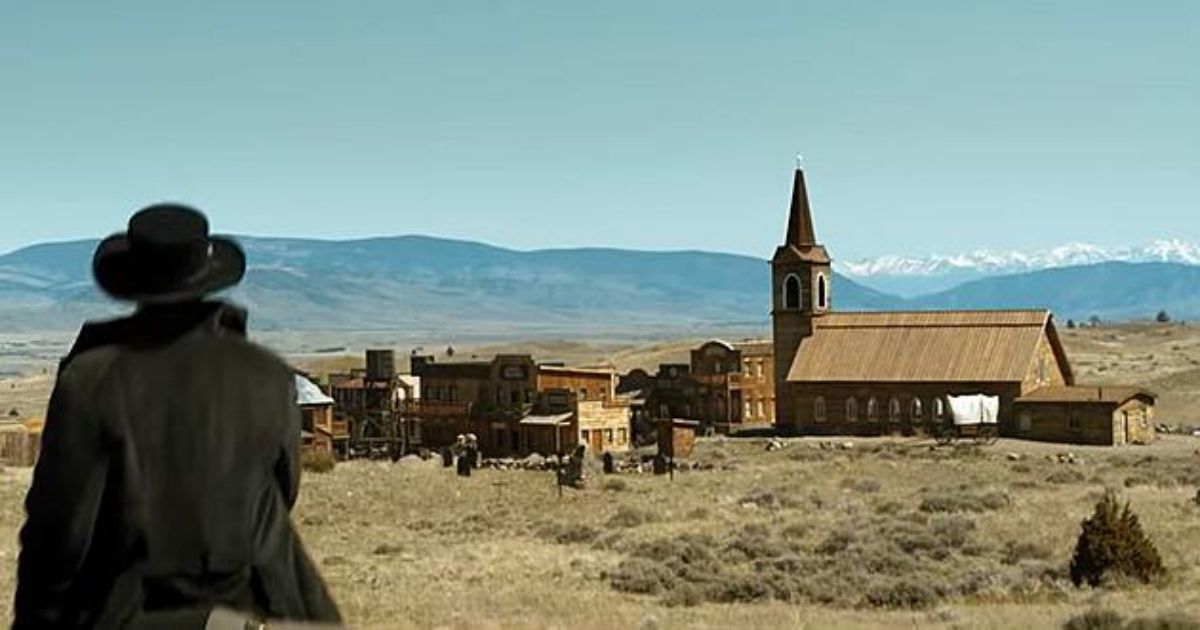Thomas Jane has his bloody finger on the pulse of a punished America. "You've got a conflict between your individual freedom and the rules of society," Jane says, discussing his new Western film which is, of course, about America itself. "Which of those rules is worthy of upholding?"
Jane is an iconoclastic figure, never really given credit for creating a great mainstream career while still remaining kind of a cool oddball and staking out a name for himself in some of the darkest, grittiest films out there. This is a man who dropped out of high school to seek out the holy grail of professional acting, living out of his car in Hollywood and busking. The famous actor's first film was literally in a different language (Telugu, for the Indian movie Padamati Sandhya Ragam), evidence of his almost surreal career. Jane has been all over the place as an actor, from headlining the darkest Stephen King movie adaptation with The Mist, to playing a particularly dark Punisher, to even playing a high school coach who gets into the adult film business in Hung.
Speaking to him is equally surreal, as he embodies nearly a caricature of some undefinable artist on the Zoom call, and yet is self-aware and intelligent enough to not be a parody. Yes, he smokes a pipe while he speaks, and yes, there are skulls on the mantelpiece behind him (beneath a massive, frightening, gorgeous painting by Todd Schorr), but Jane knows what he's talking about. He raps wise about the archetypal nature of the Western movie genre and the important sociopolitical and universal truths which can be mined from it for the current moment, something applicable to his new film, Murder at Yellowstone City. He's a unique and sometimes contradictory figure, and he plays one in the film — a Christian preacher capable of a gunslinging massacre.
The Western Mystery of Murder at Yellowstone City
Murder at Yellowstone City focuses on the titular town after the murder of a man who has recently struck gold. The sheriff (an always reliable and committed Gabriel Byrne) and his posse believe the culprit to be Cicero (played by Isaiah Mustafa), a freed slave who arrived in town the day before and eloquently quotes Shakespeare while striking an intimidating pose. Two of the few people in the film to believe Cicero's innocence are Thaddeus Murphy (Jane) and his wife Alice (Anna Camp), the church leaders and spiritual guidance of Yellowstone City.
Soon, everyone involved (including a truly delightful Richard Dreyfuss) will be suspicious of each other, trading skeptical glances and, eventually, bullets. The film is an anomalistic mash-up between old-school Agatha Christie-style murder mysteries and classic Westerns, and yet it manages to somehow be socially relevant. All the characters are dynamic and multifaceted, but Thaddeus is a combination of certain rich Western tropes with some new modern sentiments. The viewer knows he has a dark past and a possibly dark future, and the film finds him in the middle without explicitly referencing his actions outside it.
"You've got the classic man with a past who wants to let that go and recreate himself in a town," Jane says, "and he actually believes in what he preaches. You know, he's the last guy in the world that you think would turn into a preacher, but he actually wants to bring some good and some hope into the world. And he's doing that, you know. The West is famous for being a place where you could go and drop your past wherever you were, whatever mistakes you've made, whatever trouble you've gotten into, and you could go out west and reinvent yourself as another new person, and Thaddeus wants to do exactly that." Jane continues:
He's basically a good human being at heart, even though he's done some questionable things in the past. He's got himself married, and his wife knows nothing about who he used to be. So when the stranger comes to town, and in Westerns a stranger always does, this series of events forces Thaddeus to confront his past. And then his wife, it tests their love, and he hopes his wife can stick it out.
Thomas Jane on the Political Urgency of the Classic Western
Thaddeus enters into the classic dilemma of the Western — the good person forced to do a morally dubious thing for good reasons. This is the kind of gray-area, ethically ambiguous antihero that Jane adores, but the character represents much more for Jane than just a complicated dude. This archetypal Western character allowed the actor to navigate some very interesting contemporary themes. For Jane, the Western (just like the process of American history) exposes the difficulty of the social contract.
"A classic Western is all about the freedom of the individual," Jane says, "you know, 'Just leave me alone, let me do what I want as long as I'm not hurting anybody.'" That American individualism and libertarian attitude is contrasted with the principles of democracy and civilization itself, though, "the confines and rules and morals of living in a town with people, the society. So, you know, you've got a conflict between your individual freedom and the rules of society, and which of those rules is worthy of upholding? Which rules can you bend or break? There are certain things that you just can't break; there are things where, if you go down a path of corruption or let corruption stand and then infect the rest of the town, well, you're not going to have a town after a while."
There's obviously a lot to unpack here. The Coronavirus pandemic shined a light on many broken things, and one of them was this conflict between the individual's freedom and the rules of society. Should an individual have the freedom to not wear a mask or get vaccinated if it puts the larger social unit at risk? Then, with the current Jan. 6th Committee hearings taking place, this idea of bent rules and letting corruption stand seems eerily relevant, and many citizens and politicians are still navigating the hard line on certain issues.
Standing Up For What's Right in Yellowstone City
"You need to draw the line, and the Western is about taking a stand," Jane continues, "and standing up for what you believe is right." In Murder at Yellowstone City, the authority figures want to punish Cicero, but Jane's preacher man Thaddeus is convinced that the accused is innocent. "It's not just about this guy and what he did wrong and the fact that you're gonna hang him, even though he's innocent, like 'okay, we'll let that one slide because we have to keep a sense of order in the town.' No, no, actually, what we have to do is tell the truth." Jane goes on:
If we tell the truth, things are gonna work out, and if we start lying, then you're gonna have to make another lie, and then another one, and then you got to drag everyone else into your web of deceit. Well, then you're not going to have a place worth living in [...] It's about standing up for what you think is right, because it matters. And I think that does speak to issues that we're dealing with today. You know, most people just want to be left alone, "Just leave me alone, let me go to work, collect my paycheck and, you know, we'll be alright." That doesn't stand any more today. Certain times in history require good people to stand up and speak out for what is right, what they believe in, and what's right is the truth [...] We're entering a period of time, or we're in it, that the truth becomes more important than your desire to be left alone.
The Western Genre Chronicles American Civilization
The history of civilization is, in many ways, a chronicle of the conflict between the one and the many. Freedom and democracy are dangerous, powerful ideas (about which revolutions are waged) that have challenged authority and institutions for centuries, and the Western genre is one of the most important tools of dissecting what it means to be free and what, paradoxically, we must sacrifice in order to do so.
"Most people do not really want freedom, because freedom involves responsibility, and most people are frightened of responsibility,” Bryan Magee writes while discussing Sigmund Freud's Civilization and its Discontents. Murder at Yellowstone City shows the staggering burden of responsibility when it comes to maintaining freedom and telling the truth, and that this responsibility is not simply owed to oneself but rather to the larger community, to every neighbor, and even to 'the other,' the one who doesn't look or act like us.
In the actual Civilization and its Discontents, Freud writes, "Beauty has no obvious use; nor is there any clear cultural necessity for it. Yet civilization could not do without it.” With its incredible Montana scenery, meticulously crafted setting at Yellowstone Film Ranch, great acting, and fascinating script, Murder at Yellowstone City is a fine example of the kind of beauty necessary for civilization, one that tells the truth in artful and entertaining ways. "Well," Jane says, "Westerns will do that."
From RLJE Films, Murder at Yellowstone City is in theaters, On Demand, and Digital starting June 24th.

